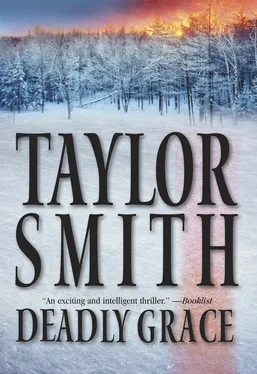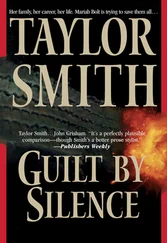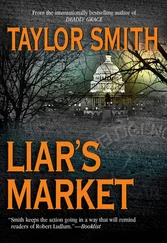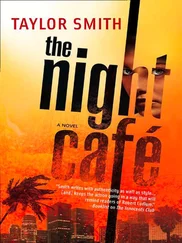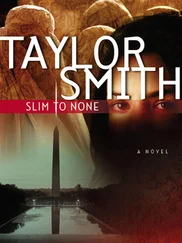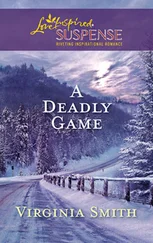“They’re a fine bunch, my family, but forever nagging me to settle down and produce a gaggle of little Finneys. They can’t help themselves. It’s a genetic defect—the Irish Catholic thing, you know. Last thing I’m interested in, believe me, after spending my days in a classroom riding herd on other people’s rambunctious monsters. If a stranger’s around, though, they’ll be on their best behavior. Might actually stifle themselves about my pitiful life, at least for one day.”
Like he himself wasn’t the pitiful one, Cruz thought, an old stray taken in by a kindhearted woman. And so it had started, light and friendly, but in the usual way of these matters, one thing had led to another. Maryanne’s enthusiasm in the bedroom, he’d discovered later that evening, was as cheerful and energetic as everything else about her. When she finally fell into sleep, it was deep and undisturbed, leaving him awake in the dark with only his guilty conscience for company. As he’d watched the pale luminous curve of her shoulder and neck in the soft glow of the candles she’d lit before they made love, he’d seen a Botticelli painting of uncomplicated virtues, a woman who, despite her protestations to the contrary, did seem to hanker after a man who’d stick around for the long haul.
He wasn’t what a nice woman like that needed or wanted. After all these years, he was too wedded to his solitude and too addicted to the job. Sooner or later, every woman with whom he got involved came to the same conclusion, and the endings were always the same—tears, angry words and self-recrimination. So Cruz had done what seemed like the kindest thing—he called Maryanne the next day to apologize for letting things go further than they should have.
He’d been avoiding Sean Finney ever since. Like every matchmaker since the beginning of time, Finney took bumptious delight in the thought that his introduction of cousin and co-worker might bear fruit. As if that weren’t bad enough, Sean was evidently plugged into some mysterious Finney family tom-tom network that seemed to have been vibrating since the moment Cruz’s path had crossed Maryanne’s, so that Sean spent half his time haunting Cruz’s cubicle, fishing for details on what was transpiring between them. She deserved better than the both of them, Cruz thought guiltily, flipping through the papers on his desk.
He was assigned to the FBI’s International Liaison Division, investigating a wide array of cross-border offenses—organized crime, kidnapping, terrorism, outlaw motorcycle gang activity, child abduction, art theft and violent crimes such as murder, rape and robbery—sifting through evidence, following up leads and liaising with law enforcement agencies domestically and internationally. During his Army career, Cruz had worked homicide cases all over the world, and the Bureau, desperate for experienced agents to help deal with the burgeoning of cross-border crime syndicates and international terrorism, had snapped him up as soon as he’d resigned his commission and his résumé had hit the street.
By 9:00 a.m., he’d narrowed down his day’s work to the two or three cases that offered him the chance to get out in the field. Before the day was out, the Meade affair would push all the others aside. It wouldn’t be long after that that he would be pursuing the elusive mystery of Jillian and Grace Meade with a single-mindedness bordering on obsession.
He was reaching for his coat when Sean Finney’s rust-colored head and myopic gray eyes suddenly popped up over the beige fabric-covered divider that separated their desks. “Hey, Alex! What’s cookin’? You comin’ or goin’?”
“Going,” Cruz replied, regretting that he hadn’t moved a little faster. Engrossed in his review of background briefs, he hadn’t even heard the voluble, heavyset Finney arrive. Yet there he was, larger than life, with his gravely smoker’s voice and his unavoidable bonhomie.
“Where you headed?”
Cruz held up a blue sheet of paper, one of the stack of color-coded international alerts that crossed their desks daily. “Gotta track down a subject, try to take a statement.”
The alerts, part of a global cooperative effort between various national law enforcement agencies, sought information and assistance in locating wanted persons. Red bulletins warned police and border checkpoints to be on the lookout for fugitives with outstanding arrest warrants. Green ones were for career criminals, like child molesters or pornographers, likely to commit repeat offenses in several countries. Yellow notices meant missing persons, gray ones detailed organized crime groups. The white notices, most often directed to Sean Finney’s desk, provided details on stolen art and cultural objects. Black diffusions sought help in identifying dead bodies that had turned up with false or missing identification.
A blue alert like the one Cruz held in his hand was a request from a foreign police agency—in this case, Britain’s Scotland Yard—to trace a witness to a crime. Many of these witnesses were actually suspects who, if the evidence panned out, would eventually be the subjects of red Fugitive Wanted notices. Once the suspect was located, an extradition request would be the next thing to come down the pipeline.
It was in this blue-printed notice that Cruz had spotted the Washington address of a witness wanted for questioning regarding two homicides that had gone down in Britain a couple of weeks earlier. One of the victims had been a seventy-one-year-old former civil servant by the name of Vivian Atwater, who’d been shot in her London apartment, which was subsequently torched. The other was a sixty-year-old spinster in Dover, England, and the murder of Margaret Entwistle appeared to have followed a similar M.O. Both women were somehow linked to an American whose address, conveniently, was right there in the capital, only a couple of miles from his office.
“ScotlandYard sent this over. They’ve had a couple of what they’re calling ‘elder murders’over the past couple of weeks,” Cruz told Finney. “They’re asking us to have a talk with a woman here in D.C. who knew both vics, see if she can shed some light.”
“She? We got a female perp?”
“Don’t know. Apparently she’d met with both victims a few days before they were killed. The fact that she called on one of the victims might be coincidence, but two starts to look a little hinky.”
“You got that right. So you’re gonna run her down?”
“Gonna try,” Cruz said as he started to lock up his cabinets.
“Need some backup?”
“I think I can handle it.”
“Oh.” Finney sounded disappointed. Cruz felt the air move as he tossed his coat over the spare chair in his cubicle, then heard the hiss of a match as his neighbor lit the first of many cigarettes that fouled the air around his desk daily.
All the more reason not to let the guy ride along in his car. Finney leaned over the divider. “If you change your mind and decide you could use some help—”
“You bet. I’ll let you know.” Cruz nodded and headed out of his cubicle. The squad room had filled by now, agents and analysts sifting paper, typing up case notes and working phones that never seemed to stop ringing.
Cruz made it as far as the elevator before his luck ran out. Finney’s voice cut through the hum like a rusty hacksaw. “Hey, Alex, by the way—seen Maryanne lately?”
Caught in a trap of my own damn making, Cruz thought grimly, as heads popped up all around. Just then, the elevator door wheezed open. He leapt on, playing deaf and dumb as he hit the Close Door button.
According to the passport details supplied by Scotland Yard, the witness sought for questioning on the two open-book homicides in the U.K. possessed dual citizenship due to her parentage. Mother: English. Father: American. Date of birth: July 14, 1944. Place of birth: Drancy, France—which, technically, Cruz supposed, would make her a citizen of that country, too, if she ever cared to claim the right. A war baby, obviously. Thirty-five years old, born on the anniversary of the storming of the Bastille.
Читать дальше
